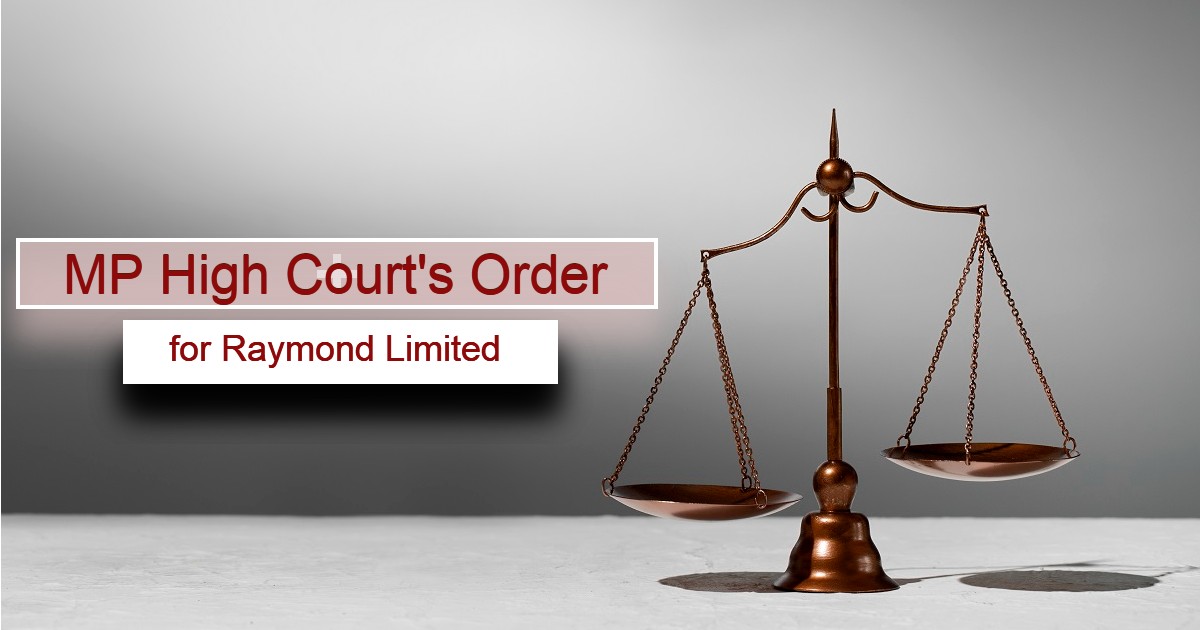
The High Court of Madhya Pradesh recently invalidated a show cause notice and demand order given against Raymond Limited, stating that Section 73 of the CGST Act allows the notice a minimum of 30 days to provide a “reasonable opportunity” to respond.
Although Section 73 does not specify a time frame for the response, it is evident that the law intends to allow a suitable time for replying to the notice. noted by the division bench comprising of Justice, Sheel Nagu and Justice Amar Nath noted that the manner of ‘reasonable opportunity’ normally means allowing a minimum response time of 15 days.
The court emphasized that since Section 73(8) of the CGST Act outlines 30 days to make tax payments including penalty and interest mentioned in the show cause notice, the “reasonable period” for responding can also be considered as 30 days.
Section 73 of the Central Goods and Services Tax Act deals with the determination of unpaid, underpaid, erroneously refunded taxes, or wrongly availed input tax credit, excluding cases of fraud or intentional misstatement.
In this particular case, the show cause notice was issued on 03.09.2022, and the demand order followed only eight days later on 12.09.2022. The court deemed this time frame insufficient to provide a “reasonable opportunity” for the recipient to be heard.
Furthermore, the court found that the show cause notice lacked essential details, preventing Raymond Limited from giving a satisfactory response. The court stated that a show cause notice, whether under Section 73 or otherwise, can only withstand judicial scrutiny if it contains sufficient material that prompted the issuing authority’s prima facie view against the recipient. If the contested show cause notice is deficient in material particulars or vagueness regarding any entries, it becomes susceptible to judicial review.
Read Also: How to File Form GST REG-18 for Reply To Show Cause Notice?
“In this regard, this Court merely observes that any show cause notice whether u/S.73 or otherwise can withstand the test of judicial scrutiny only when the same contains enough and adequate material which motivated the notice issuing Authority to take a prima facie view against the notice. If the contents of impugned show cause notice are lacking in material particulars or are vague in regard to any of the entries contained therein then such show caused notice becomes vulnerable to judicial review”.
The respondent authorities were also fined Rs. 10,000 by the court, which is payable on behalf of the petitioner company. Additionally, the court instructed the filing of a compliance report within 60 days. Failure to comply will result in the matter being listed for execution regarding the imposed cost.
Previously, on 01.12.2022, the court prohibited the respondents from taking persistent measures against Raymond based on the challenged show cause notice and demand order.
Consequently, the show cause notice dated 03.09.2022 (Annexure P/2) and the demand order dated 12.09.2022 (Annexure P/3), both issued under Section 73 of the CGST Act, are overruled. The Revenue is granted the liberty to issue a fresh, legally valid show cause notice and proceed accordingly, after providing a reasonable and sufficient opportunity for the petitioner to be heard. This ruling was made by the Jabalpur bench, allowing the petition filed by Raymond under Article 226 of the Constitution.
Advocates Gopal Mundhra, Ginita Badhani, and Rohan Harne represented Raymond Limited, while Advocate Darshan Soni represented the state authorities.
| Case Title | Raymond Limited Versus Union of India and Others |
| WRIT PETITION No. | 26693 of 2022 |
| Date | 20.11.2023 |
| MP High Court | Read Order |









